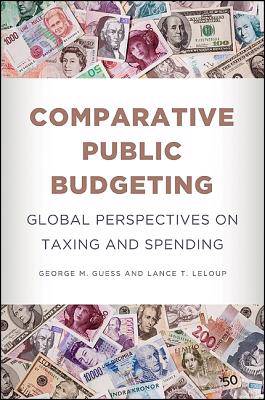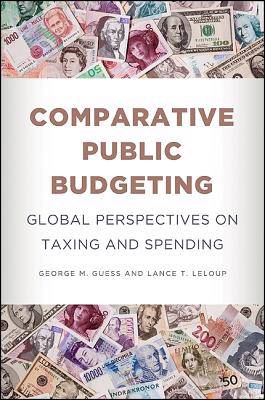
- Afhalen na 1 uur in een winkel met voorraad
- Gratis thuislevering in België vanaf € 30
- Ruim aanbod met 7 miljoen producten
- Afhalen na 1 uur in een winkel met voorraad
- Gratis thuislevering in België vanaf € 30
- Ruim aanbod met 7 miljoen producten
Comparative Public Budgeting
Global Perspectives on Taxing and Spending
George M Guess, Lance T LeLoupOmschrijving
Holistic, comparative analysis of multiple budget systems and contexts.
Increasingly, governments must respond to the negative impacts of global economic crises on their revenues to finance needed services, and the collapse of their real industrial and financial-banking sectors. How they respond most effectively is a new study area which demands sharing of lessons between nations on government fiscal policies and performance. Budgeting for and financing of government programs and services vary widely among nations and it is important that we understand the implications of similarities and differences in methods and systems. Only through comparative analysis of public budgeting systems can results be improved in such policy areas as health, education, economic stabilization, and infrastructure development. The current global economic crisis has increased fiscal deficits and the accumulated public debts of most countries. It is especially critical now that lessons from budgeting in particular regional clusters be compared and that policymakers adopt the most relevant and useful ones that are available. In Comparative Public Budgeting, George M. Guess and Lance T. LeLoup examine conditions affecting budget decisions at the national and local levels. They review how nations classify their revenue and expenditure transactions, compare cultural and economic conditions between regions, and examine legal and institutional features that affect public management of budgets. Incorporating the most recent and significant changes in budget policy spanning more than 230 nations including the United States, the Commonwealth countries, and a selected group of European Union members, this book offers a fresh analysis of how cultural, institutional, and political forces determine how countries allocate resources and spend them for programs and policies.
Specificaties
Betrokkenen
- Auteur(s):
- Uitgeverij:
Inhoud
- Aantal bladzijden:
- 306
- Taal:
- Engels
Eigenschappen
- Productcode (EAN):
- 9781438433097
- Verschijningsdatum:
- 1/11/2010
- Uitvoering:
- Hardcover
- Formaat:
- Genaaid
- Afmetingen:
- 160 mm x 234 mm
- Gewicht:
- 557 g

Alleen bij Standaard Boekhandel
Beoordelingen
We publiceren alleen reviews die voldoen aan de voorwaarden voor reviews. Bekijk onze voorwaarden voor reviews.











